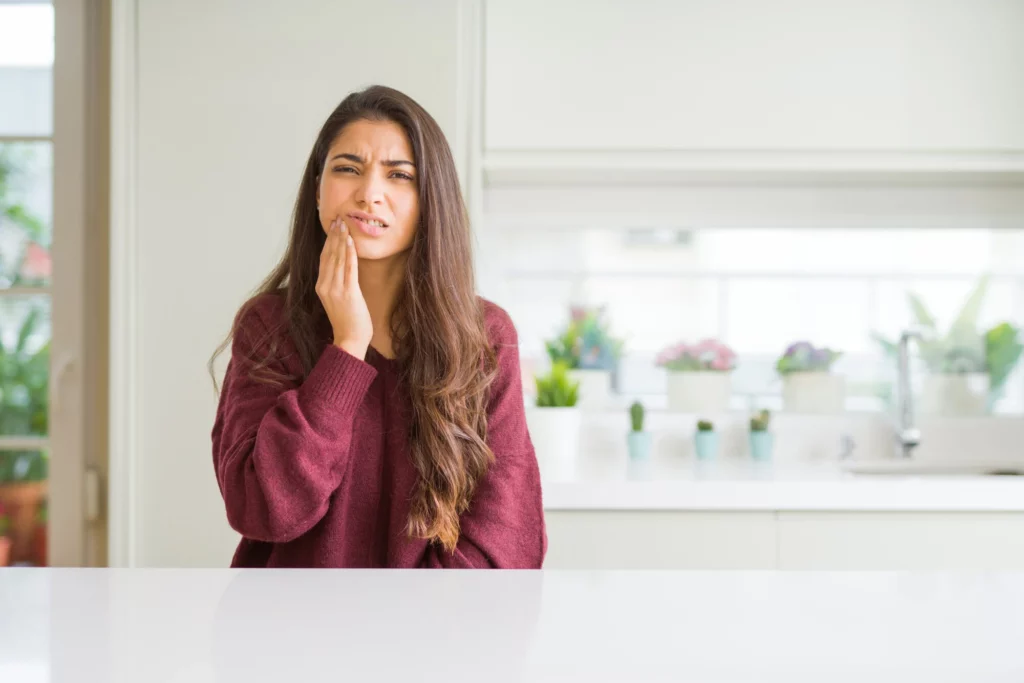Don’t you just hate it when eating or drinking something causes your tooth to hurt? When you live with pain, it can make everyday activities something to be dreaded.
The worst part is that it can seem like there’s nothing you can do about it. There are a few things you can do to help ensure the pain doesn’t come back and will help prevent it from happening again.
When your tooth hurts when chewing, this guide can give you a few things you can try. Keep on reading to learn more.
Common Causes of Tooth Pain When Chewing
The most common cause is dental decay, which can damage the enamel of the teeth and cause sensitivity to hot and cold temperatures. Another common cause of tooth pain when chewing is gum recession, which can expose the root of the tooth and cause discomfort when biting and chewing.
Other causes of tooth pain when chewing can include dental trauma, infection, and grinding. Certain medications such as anti-depressants, anti-anxiety drugs, and blood pressure medications can cause sensitivity of the teeth and gums.
Improper oral hygiene practices can lead to the buildup of bacteria and plaque which can cause tooth pain. It is important to seek regular checkups and preventive care to avoid tooth pain when chewing.
What To Do
This common issue can be caused by several factors, and luckily, there are solutions. The following are the things on what you can do when your teeth hurt when chewing.
Try Home Remedies
Avoiding extremely cold/hot foods can help alleviate some of the pain. A salt water rinse is a simple and fast home remedy to reduce inflammation and swelling in the gums.
Dabbing a cotton swab in clove oil and placing it on the affected area provides a numbing sensation. Ice packs can be applied around the face to reduce inflammation and pain.
Look For Over-The-Counter Medication
Tylenol or ibuprofen can be taken to provide relief from dental pain. Additionally, medicated toothpaste or mouthwash can be used to help provide a layer of protection and relief from sensitivity and pain.
An oral anesthetic gel or a topical anesthetic can be applied directly around the affected tooth for instant relief. If you have an infection, oral antibiotics might be the best option.
Consider Professional Treatment Options
Even if the pain is mild and tends to go away, it can be an indication that a professional is needed. Common treatments can include root canals, dental crowns, inlays, and on-lays.
A qualified emergency dentist will determine the best course of action to address tooth pain and restore your dental health. If your toothache is severe, you may need more advanced treatments to stop the pain and restore your oral health.
Scheduling regular dental visits can help protect your teeth and avoid potential long-term dental issues. By doing this, managing toothache during dental emergency will be easy.
Try These Things When Your Tooth Hurts When Chewing
If your tooth hurts when chewing, contact your dentist right away. This guide provides helpful guidelines on what to do before and after visiting the dentist.
Taking action immediately while knowing the causes can prevent further damage and promote recovery. Don’t wait to take action; your teeth are too valuable not to take care of them.
Did you enjoy this topic today? Then explore the rest of our blog.
You may also like
-
STD Clinic Dubai: Confidential & Professional STD Testing
-
Buy Shilajit UK Guide to Finding Authentic Himalayan Shilajit
-
Buy Shilajit Online: A Modern Path to Ancient Wellness
-
The Best Shilajit Brands: A Complete Guide to Quality, Purity & Performance
-
Unlocking Nature’s Secret: The Best Place to Buy Shilajit

